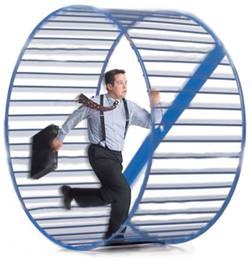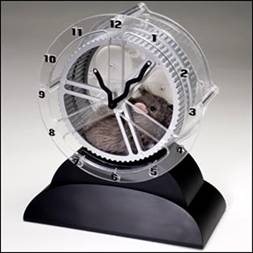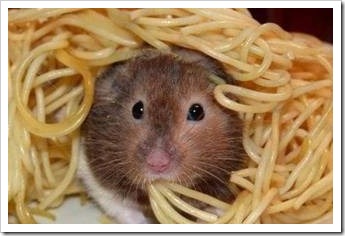
To many of us, it means we feel trapped. We often hear or read the term “rat race” as a description for the way we live – like rats in somebody’s lab, running around, trying to find a way out or get to the reward at the end of a confusing and frightening maze. Trouble is we do not even know whose lab we are in and we feel helpless and out of control.
In his excellent book, The Tipping Point: How Little Things Can Make a Big Difference, Malcolm Gladwell describes some fascinating events and research about how our environment affects our behavior and the behavior of those around us. Sometimes, it can drive a man to kill, but when managed well, it can lower the crime rate and improve the lives of many people. He calls this “The power of context”.
The book highlights some things that we can all use to regain control of our lives, improve the quality of our time on Earth and make the world a better place for our children and even for other people around us.
One research examined the effects of news about suicide on the rate of suicide. Turns out that after the papers report a suicide, there are more suicides than usual. In fact, the rate of increase is predictable by the number of days following the news.
Going a step further, the research found an increase in car accidents following suicide notices in the papers in the same predictable pattern.
The truly amazing thing is that those subsequent events matched the details of the stories about the suicides, so articles about single young people taking their own life inspired single young people to kill themselves, using the reported methods, and other young people to drive their car to their death. When the papers told about a murder-suicide, more family men drove their cars into other people’s cars, killing themselves along with their families.
The book claims that we all have stress and discomfort in our life – long work hours, financial pressure, health problems, relationship issues, etc – and we are always on the lookout for an outlet or a way to stop the pain. Reading about somebody else’s “solution” gives us both a way to do it and the permission to do it.
Now consider other things we read about in the papers, hear on the radio, see in our email inbox or watch on the evening TV news – the global financial crisis, soldiers dying in the war in Iraq, planes flying into buildings, inflation, rising prices of gasoline, crime everywhere, celebrities divorcing, gaining weight or losing weight. Add to that the non-stop barrage of advertising – drink this, pop this pill, put this on your face, you really must or horrible things will happen to you. Argh!!!
So tip #1 is:
Disconnect from bad news
Decide what is important for you to know, subscribe to services that only provide that and filter out all the rest.

What?!
Absolutely true. Scientifically proven. Homes have a great influence on young people and parents are important role models, but the social circle and physical environment in which kids grow up are massively important to their life choices.
It is because of something called “the broken window effect”.
You see, when a window is broken on the street, people walking by notice it. After a while, if the window is not fixed, they conclude that whoever owns that window does not care. The likelihood of another window being broken in the vicinity increases dramatically, leading to further increases, until the neighborhood becomes a place where broken windows are the norm and breaking windows is OK.
In New York City, this idea was used to reverse subway crime and reduce the overall crime rate significantly within just a few years. By cleaning the subways cars, keeping their walls free of graffiti and then clamping down on fare beating (jumping over the turnstiles without paying), people’s attitude towards the subway environment gradually changed. They started to care, so they stopped vandalizing and they stopped hurting one another.
So tip #2 is:
Live in a good, clean, well-organized environment
Move to a good neighborhood, choose to work in a well-run organization, enroll your children into good schools and keep your home neat and tidy.
Consider all the areas of your life and put them in order.
With me so far? Great, because The Tipping Point continues with the amazing discovery of the social limit of 150.

The idea is that social interactions require the most complex sort of thinking by far and that the complexity goes up very quickly. In a group of 3, there are only 3 connections. In a group of 4, there are 6. In a group of 5, there are 10. In a group of 50, there are 1,225 connections and 150 people need to keep track of 11,175 interpersonal relationships.
It gets too much at that point and people start to form smaller groups – cliques, clubs and in-crowds – and we all know how that usually ends up. On a larger scale, we get wars.
Some companies have experimented with this principle and have limited the size of their office buildings or factories to fit only 150 employees. The cohesion achieved is nothing short of amazing, making every interaction in the workplace based mostly on personal contact and human relationships, rather than a formal hierarchy and external targets.
So tip #3 is:
Limit work and study to 150 people
Rather than getting lost in a large organization, choose one with 150 or fewer people (as far as interactions go). Rather than your kids getting into strife in a large school, choose one with a combination of 150 or fewer classmates and teachers.
Consider the environments where your family members spend their time now. Each person’s social environment is defined by the people they are in contact with on a regular basis. Personal friction, separatism, in-groups and snobbery are all signs of too many people in the same social scene. That family member would be better off in a smaller social setting, where everyone can easily keep track of their relationships with others.
Just to be clear, you can go too small here. Working from home has its own issues and may result in a feeling of disconnect and isolation. The same may be true for home schooling without hobbies or playgroups.
However, as someone who has worked at home, in small companies, medium-sized ones and really big ones, I can tell you that smaller environments lack the intense politics, competition and employee devaluing of larger ones and feel a lot more personal. Just think of the term “family business” and it brings a smile to your face, as opposed to “corporation” or “big brand”.
For a warm, cozy feel, choose smaller environments in which to work and study.
By managing your life’s context, you can escape the rat race. Yes, you can!
Happy living,
Gal











